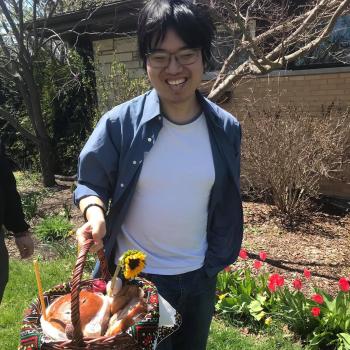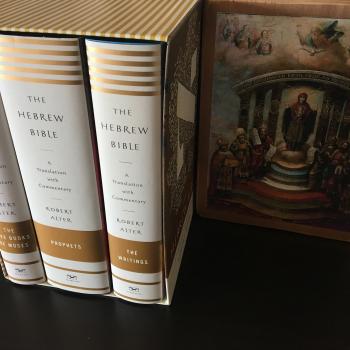Qoholet in Ecclesiastes instructs us to let our words be few when making vows to God. When I agreed to this blog, I swore to myself and by myself alone that I would never bring my actual academic work to bear on my comments. The day has come to break that oath, and I am glad that it was not professed as a formal vow.
My friend, Sam, has written quite the rant on a separate blog fulminating against a newly planted expatriate church in Hong Kong. As he points out, even as Hong Kong dock workers’ wage inequities have culminated in a strike this week, the newly planted church proliferates a version of what Karl Marx would call the “opiate of the masses,” flying in their home American megachurch’s senior pastoral couple to call their congregation to reflect on spiritual happiness over against material prosperity, and by extension, immanent social justice. Sam writes an open letter to American missiologists who assume that they have more to contribute than to learn from their mission fields. He castigates their neocolonialism, protesting their continuation of colonial missionary practices and their orientalizing fantasy of reaching China for Christ through Hong Kong as a stepping stone. As Fuller missiologist William Dyrness points out in his contribution to the Cambridge Companion to Evangelical Theology, evangelicals have long been better at speaking than listening. As Sam would say, using Hong Kong as a stepping stone to China is Exhibit A in these practices of bad listening.
Sam is likely more right than he knows. After all, evangelicals were also culprits in perpetuating colonial injustices in another dock workers’ struggle, the Seamen’s Strike of 1922. As Hong Kong historian W.K. Chan records, wealthy tycoon and openly evangelical Robert Ho Tung effectively broke the strike by negotiating terms with the seamen that he failed to keep. Not only is Sam right about the problem of expat evangelicals not listening to local conditions, but this repetition of history seems to indict evangelicalism itself for tending to side with the wealthy and the colonizers, not with the working colonized oppressed.
But this is where Hong Kong evangelicalism is so interesting: there is more than one strand of evangelicalism in Hong Kong. Indeed, before we use the case of Ho Tung and the Seaman’s Strike to call Hong Kong evangelicalism a bourgeois religion, we probably should contemplate the historical development of various forms of evangelicalism in Hong Kong.
The word on the street in Hong Kong is that in the 1950s, evangelical revivals broke out among Baptists and Evangelical Free youth, resulting in the formation of independent churches patterned after Brethren congregations, the development of student ministries linked to InterVarsity Christian Fellowship, and the expatriation of evangelical students to North America where they started Chinese churches. Many of these students returned to Hong Kong in the 1970s, having caught a vision in North America to reach China, particularly after what they saw as the political devastation of Mao’s Cultural Revolution. In effect, like the expat church in question, they were using Hong Kong as a stepping stone into China missions.
Be that as it may, however, an evangelical strand that developed among these expats was one centered on the city of Hong Kong itself. Realizing that they were unable to conduct missions into China in the 1970s, the returning students discovered that perhaps their vocation was not China after all. Perhaps it was to the city of Hong Kong itself. One of the returning students, journalist Josephine So Yan Pui, articulated this theological line in a letter that has now become iconic for her legacy, “Lord, what can I do for this city?”
Josephine So lamented that Hong Kong in the 1970s had become a city of violence, especially through gang warfare, frequent homicides, rampant theft, and the proliferation of pornographic material, and that the church was feeding this culture of death by holding to its regular routines of in-house Bible study, fellowship, and evangelism without addressing the needs of street youth. Together with expats and social work students at Hong Kong University and the Chinese University of Hong Kong, So became one of the founders of the Breakthrough Movement in 1973, a media effort directed to Hong Kong youth to change their culture from one of violence to one of peace.
In many ways, the incipient stages of the Breakthrough Movement led to the development of an evangelical liberation theology. In 1977-78, female students and teachers at the Precious Blood Golden Jubilee Secondary School struck against unjust educational practices at their high school. Josephine So issued a statement in Breakthrough Magazine supporting them, and Breakthrough workers joined the strikes outside of the Catholic archbishop’s house, calling for justice and educational reform. As the Rev. Lo Lung Kwong, a Methodist minister influenced by Josephine So, remembers, the Golden Jubilee Incident catalyzed the work of mainline Protestants at the Hong Kong Christian Council (HKCC) to work for just policies for factory workers in the Chai Wan District. Together with evangelical pastors like the Rev. Chu Yiu Ming, they opposed the rise of bus fares, utility bills, and pornography while advocating for the construction of an Eastern Hospital in Chai Wan to service injured factory workers. Evangelicals also joined the Rev. Kwok Nai Wung when he departed from the HKCC to form the Hong Kong Christian Institute (HKCI), an educational initiative to help Christians in Hong Kong develop a theology that would interface with democracy and social justice in the face of Hong Kong’s 1997 handover to Chinese sovereignty. In the wake of the 1989 Tiananmen incident, these various groups also built solidarity networks to protest the atrocities in Beijing, to develop an indigenous Hong Kong theology, and to work for a socially just democratic order in Hong Kong. Their work continues to be debated in the pages of The Christian Times.
To use Hong Kong as a stepping stone into China is to ignore this evangelical liberation theology and the complexity of the Hong Kong church’s interface with society altogether. Yet the trouble might be even deeper. In classic colonization theory, for colonialism to actually work, colonized elites have to collaborate and interface with the colonizers to legitimize colonial rule. Far be it from me, of course, to call expat churches colonizing institutions (does they, for example, explicitly represent the state interests of the United States?). However, what is of concern is the lingering colonizing practices that Sam sees here.
It seems, after all, that reaching China is about discovering one’s purpose in life. By “purpose,” the idea is that American suburbanites need to recapture a sense of the meaning of life, and the way to do that is to go on mission, both evangelistic and humanitarian. As geographer Justin Wilford brilliantly narrates in Sacred Subdivisions, American suburbanites are brought into a greater sense of their “purpose” as Christians to advance God’s kingdom in the world. As Wilford shows, discovering purpose begins at home. Borrowing from South Korean pastor David Yonggi Cho’s cell group model, American suburban members are taught to reframe their mundane lives around “purpose” and what God is teaching them through their everyday lives. Mission, then, is about suburbanites discovering their individual purpose in life. As I also found in my research on Chinese evangelicals borrowing from these megachurch models, to be an “American evangelical” discovering “purpose” did not mean that one had to be white. Indeed, it probably meant that one was middle class.
To frame mission as such, though, especially in Hong Kong, is in effect to exclude Hong Kong from the discovery of purpose. To do this, of course, is to unwittingly repeat the mistakes of the 1970s, failing (as the returning students did then) to see that Hong Kong evangelicalism is not only about reaching China, but to ask, as Josephine So Yan Pui did, “What can I do for this city?”
The failure to see this might be attributed to a variety of factors. Perhaps this American church plant has been influenced by a narrow slice of evangelicals in Hong Kong who aren’t fans of the sort of evangelical liberation theology stemming from Josephine So. Perhaps they are articulating the original terms of the mission to China without any reference to the urban theology that has developed in Hong Kong since the 1970s. Or perhaps they are operating on dated, colonial-period versions of American evangelical missiology that is obsessed with the idea of Americans reaching China for Christ. Perhaps there is some combination of those options, or perhaps there are other reasons.
Whatever the reasons may be, the fact that this expat church’s actions seem to have little historical grounding in Hong Kong’s church scene and even less engagement with current socio-political realities in Hong Kong suggests that all might not be well here. The problem, as Sam suggests, is that the Gospel mandates some level of incarnation, some level of being present. As Pope Francis and Archbishop Justin Welby have reminded us over the last few weeks, their episcopal jurisdiction and their proclamation of the Gospel is to their local dioceses–to the city of Rome, to the districts of Southern England–so that those churches may preside in charity over their respective communions. Rome and Canterbury are not any more stepping stones than Hong Kong, but the Gospel as preached and lived in the mundane, everyday lives of these cities is the source of a new evangelization that may well have global ramifications.
What this amounts to, then, is a failure of catholicity. The local situation that Sam talks about in his blog may revolve around workers’ rights, but those activities offer a window into a larger theological problem. The planting of this sort of expat church in Hong Kong betrays an ignorance of the incredibly diverse Christian church in Hong Kong. Stepping into the Hong Kong scene requires the church to engage those debates. This is a catholic duty, one that we all profess when we acknowledge our belonging to the “communion of saints” in the baptismal creed. The tragedy here is not just that these church plants are in effect devoid of any preferential option for the poor. It is that by failing to put their ear to the rich complexity of evangelical theological praxis in Hong Kong (and we haven’t included much of mainline Protestantism and Catholicism in this mix), these church plants are potentially schismatic, contributing little to the maturing communion of the Body of Christ in Hong Kong from which the missio Dei can actually proceed.
In other words, Sam’s blog is not a call for relevance. Neither is it him standing on a soapbox to proclaim a social gospel. It is rather a summons to understand that mission is only ever Christian by its sense of catholicity.











